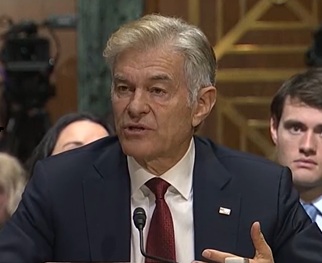Trump administration keeps up the fight on 340B, Inflation Reduction Act concerns
The current administration is defending against litigation filed by drug manufacturers against the Biden administration regarding the 340B program.
The issue of drug pricing is proving to be an area of harmony and continuity between the Trump and Biden administrations, at least for now.
In recent days, the Trump administration moved to defend the Biden administration’s stance in opposition to drug manufacturers that are looking to offer 340B Drug Pricing Program discounts through a rebate model. The administration also is moving ahead with the latest round of Medicare price negotiations for selected Part D drugs, as authorized by the Inflation Reduction Act (IRA).
340B litigation
HHS filed a March 17 motion in Washington, D.C., federal district court opposing the request of three drug companies for a summary judgment that would allow them to turn 340B into a rebate program instead of offering up-front discounts. The motion seeks a summary judgment in favor of the government.
Last year, HHS’s Health Resources and Services Administration (HRSA) informed manufacturers that the 340B statute requires government authorization to implement a rebate model. Under the Trump administration, HRSA has suggested that while such permission is feasible, it has not yet been granted and thus manufacturers are not free to apply a rebate model.
“The Court should grant summary judgment in Defendants’ favor because the Agency’s [HRSA’s] decision to prevent Plaintiffs from implementing a rebate model to effectuate 340B price reductions was within its statutory authority,” attorneys for HHS wrote in the court filing. “Moreover, Plaintiffs’ proposed cash rebate models would have upended the way the 340B Program has operated for more than thirty years and thus the Agency’s decision to prevent Plaintiffs from implementing those models ‘at this time’ was not arbitrary and capricious.”
The manufacturers contend that their 340B agreements require them to offer discounted drug prices in Medicare Part B but do not specify the manner of doing so. The absence of permission by HHS and HRSA should not mean the manufacturers are restricted from using a rebate model, they say.
Notable legal issues
HHS may have an edge in the arguments, said Jeffrey Davis, JD, a 340B legal expert who represents providers as an attorney with Bass, Berry & Sims.
“I do think the government has a strong position there in terms of the language that’s in the statute that talks about [rebates] ‘as provided by the secretary,’ and that has to mean something,” Davis said during an interview in January.
If HHS and HRSA ultimately approve the concept of a rebate model during the Trump administration, Davis said, variations in the proposals of different manufacturers may affect individual decisions. For example, Johnson & Johnson’s model would include two popular drugs, while Eli Lilly’s appears to cover to all products. Sanofi says it would use encounter claims data to determine whether a patient is 340B-eligible.
“From a provider perspective, we hope that HRSA approves none of these rebate models,” Davis said. “But they are different, and so they’re going to need to be evaluated differently.”
He added that in the 340B statute, Congress “made very clear that when deciding what type of mechanism should be appropriate, the [HHS] secretary should consider what’s the most effective and efficient mechanism, and what’s effective and efficient for one covered-entity type may not be effective and efficient for another covered-entity type. The details of the rebate models do matter in terms of effectiveness and efficiency.”
He said there could be a parallel with two appeals-court decisions that favored manufacturers in disputes with providers over 340B contract pharmacy discount restrictions. Those rulings said the restrictions are allowable but could rise to a level where they are unlawful.
In a similar context, Davis said, “Some types of rebate models may be so onerous that they would fail to meet that standard as well.”
Latest IRA developments
One reason manufacturers have given for wanting to launch 340B rebate models is the interplay between 340B discounts and IRA drug price negotiations. In the IRA, manufacturers provide negotiated price reductions via rebates, and they say the conflicting approaches between the two programs raises the likelihood of duplicative discounts.
A March 14 announcement from CMS included news that manufacturers have signed commitments to engage in price negotiations for 15 drugs this year, with prices set to take effect in 2027. A new data point, as implemented in guidance from the Biden administration, will require manufacturers to submit the net Part D health plan payment and beneficiary liability for a given drug. The information could amount to a restraint on prices in the negotiations.

In his March 14 confirmation hearing before the Senate Finance Committee, Dr. Mehmet Oz, the Trump administration’s nominee to lead CMS, did not sound especially enthusiastic about Medicare’s negotiating authority. But he also did not renounce it.
“It’s the law,” Oz said. “I’m going to defend it [in court] and use it.”
Manufacturers have filed suit against the IRA, with at least nine cases ongoing at the appellate level. District courts have ruled against manufacturers’ claims, including the argument that giving Medicare the authority to essentially mandate drug price negotiations is unconstitutional.
Oz said the approach to curbing drug prices should be multifaceted.
“There are lots of options available,” he said. “I feel compelled to pursue every one of them.”
He sounded open to an international reference-pricing model of the sort that CMS tried to implement during the first Trump administration before withdrawing it amid industry opposition.





